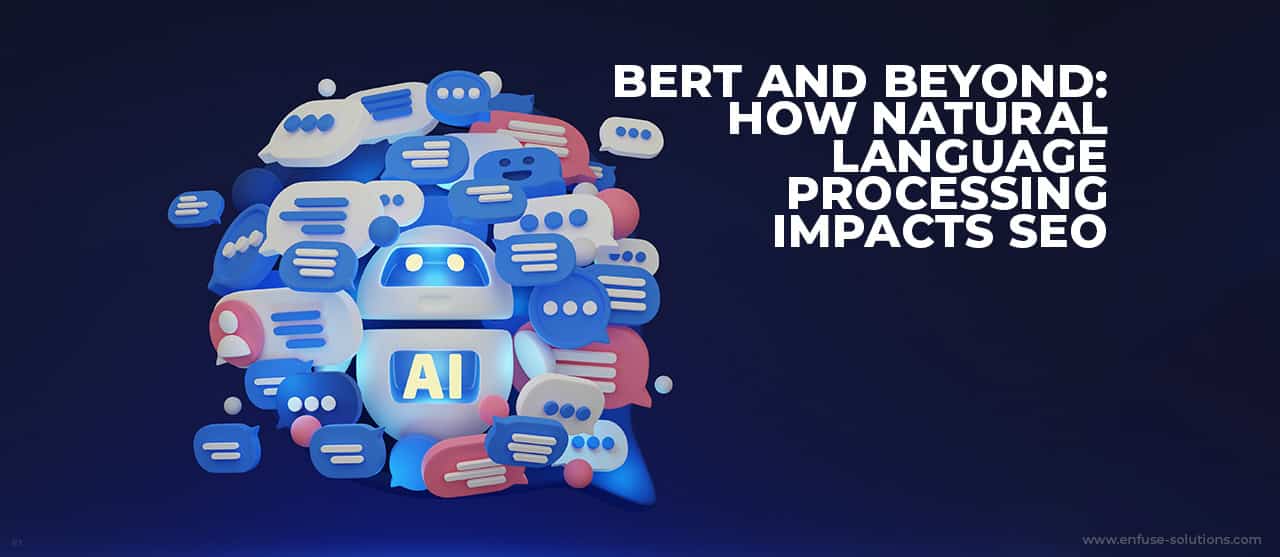
Success in the SEO field requires being current with the most recent advancements in the field. One of the most significant advancements in this field is the incorporation of Natural Language Processing (NLP) technology, particularly BERT (Bidirectional Encoder Representations from Transformers), into search algorithms. By effectively revolutionizing how search engines understand and rank content, this pioneering technology has completely transformed the rules of engagement for SEO experts and content creators alike.
This blog delves into the realm of NLP and examines the implications of BERT in the context of SEO. We will also speculate on potential future applications and offer strategies for effectively harnessing this formidable tool to achieve the best results.
Introduction To SEO And How It Has Evolved?
The inception of search engines marked the beginning of the SEO era, a practice aimed at enhancing a website’s visibility on search engines, transforming how users navigate the expansive online world. In the early days, pioneers like Archie, Excite, and Yahoo! laid the foundation for user-friendly internet searches, using simple algorithms to index web pages based on keywords and meta tags.
However, the true evolution of Search Engine Optimization took a significant leap with Google’s introduction of the PageRank algorithm. This groundbreaking algorithm considered factors such as backlinks and user engagement to determine a web page’s importance and authority. This marked a paradigm shift, setting Google apart from its predecessors.
Over time, SEO has evolved into a complex field, with Google’s algorithms now considering hundreds of factors. Today, SEO is not just about manipulating search rankings but is focused on providing users with the best online experience.
What Is The Role Of AI And NLP In SEO?
AI has significantly enhanced Google’s search algorithm, augmenting its precision and efficacy in providing relevant results to users. Gone are the times when merely integrating a handful of keywords and backlinks could effortlessly elevate your website’s position on SERPs. AI has enhanced Google’s ability to comprehend search queries and provide personalized and pertinent outcomes according to the user’s intentions.
Apart from AI, NLP also plays a significant role in SEO. Its ability to understand and analyze human language has helped Google better evaluate the quality and relevance of content. This means that content creators and businesses need to write in a more natural and conversational tone rather than just stuffing keywords to rank higher.
NLP also plays a crucial role in semantic search, where Google looks for context and meaning in the search query rather than just matching keywords, further emphasizing the importance of creating high-quality and valuable content for SEO success.
What Are The Important Ways In Which NLP Impacts SEO?
1. Improved Understanding Of User Intent
NLP enables search engines to go beyond the literal interpretation of keywords. It helps algorithms understand the context, sentiment, and subtleties in user queries. This deeper understanding allows search engines to provide more relevant and accurate results, aligning with the user’s underlying intent rather than just matching specific keywords.
2. Contextual Relevance
NLP enhances the ability of search engines to analyze the context in which keywords are used. It considers the relationships between words and the overall context of the content, ensuring that search results are not only based on specific keywords but also on broader thematic relevance. This shift towards contextual understanding improves the quality of search results and helps users find more meaningful and comprehensive information.
3. Featured Snippets And Rich Results
Through extracting and presenting concise, relevant information from web pages, search engines can provide users with immediate answers to their questions. Content creators can optimize for these snippets, aiming to be featured prominently in search results and thus, increasing visibility and click-through rates.
4. Voice Search Optimization
With the rise of voice-activated devices, NLP has become essential for interpreting conversational queries. Voice searches are often more natural and conversational, and NLP helps search engines understand and respond to these nuances. SEO strategies need to adapt to the conversational nature of voice queries, optimizing content to match the way people naturally speak.
5. Algorithm Updates And Adaptability
As search engines prioritize a more nuanced understanding of language, websites that align with NLP principles are rewarded in rankings. SEO strategies must stay agile, adapting to algorithm updates that reflect the growing influence of NLP. This adaptability ensures that websites maintain visibility and relevance in search engine results.
What Is The BERT Update And What Does It Mean For SEO?
The BERT update is one of the most significant algorithm updates in the past five years. Designed to impact approximately 10% of search queries, BERT focuses on improving language understanding, particularly for more natural and conversational queries. Google explained that BERT enhances the search engine’s ability to grasp the nuance and context of words, allowing for a better match between user queries and relevant results.
BERT’s impact on SEO has been substantial, ushering in several notable changes:
- Shift In Keyword Research: Focus shifts from specific keywords to understanding user intent and diverse search queries.
- Content Quality And Relevance: BERT emphasizes high-quality content that aligns with the nuances of natural language queries.
- User Engagement Metrics: The update considers user engagement, rewarding sites with relevant, engaging content.
- Impact On Local SEO: BERT influences local SEO, prioritizing location-specific keywords and content for higher rankings.
What Does The Future Of SEO Look Like In Light Of Generative AI?
The future of SEO is being reimagined by the integration of Generative AI, as highlighted in the Search Engine Journal’s State of SEO 2024 Report, where 81.5% of SEO professionals acknowledged its impact on their strategies. Generative AI is set to revolutionize several aspects of SEO, with practical applications spanning diverse domains:
- AI-Enhanced Content Creation: Generative AI transforms content creation by generating human-like text, automating the creative process, and elevating overall content quality.
- Next-Level Keyword Insights: AI-driven tools provide advanced keyword research capabilities, predicting trends, analyzing user intent, and generating keyword suggestions for staying ahead in the market.
- Multimedia Optimization With AI: Generative AI extends its impact on multimedia content, enhancing the relevance and discoverability of images, audio, and videos in search engine results.
- AI-Driven Link-Building: Generative AI aids link-building by analyzing vast datasets, suggesting authoritative sources, and contributing to the creation of high-quality backlinks for improved search engine rankings.
Wrapping Up
In summary, the impact of NLP, exemplified by BERT, has revolutionized SEO. Emphasizing user intent, contextual relevance, and conversational queries, NLP shapes modern SEO strategies. Beyond BERT, NLP influences keyword research, content quality, user engagement, and local SEO, underscoring its ongoing significance in the dynamic digital landscape.
Ready to transform your digital presence and overcome complex business challenges? EnFuse specializes in providing integrated digital solutions tailored to your needs. Contact us to embark on a journey of innovation and success.

















Comment